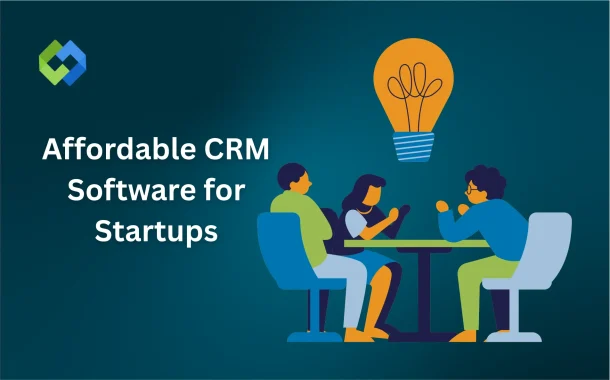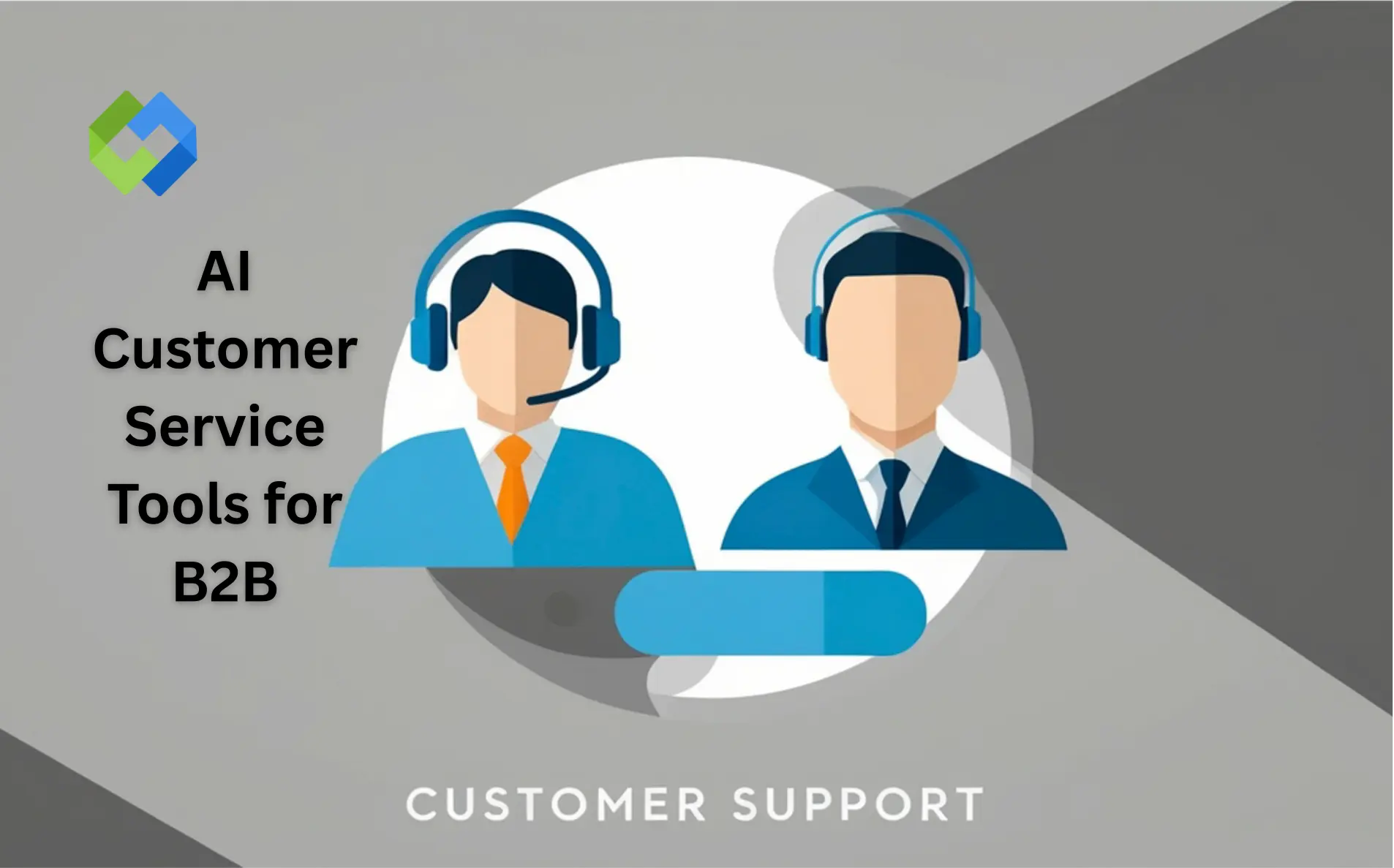For early-stage businesses, CRM is very important. Startups often have limited resources and small teams. A CRM helps them manage customers efficiently and avoid losing important leads. It improves communication within the team and ensures no customer request is missed. By using a CRM early, startups can understand customer needs better, build stronger relationships, and grow faster.
Table of Contents
Table of Contents
Why Startups Need CRM Software
Startups need CRM software to manage their customer base effectively. In the early stages, every lead and interaction is important. A CRM keeps all customer information in one place, making it easy to track contacts, communication, and potential opportunities. This prevents missed follow-ups and ensures that no lead gets overlooked.
CRM software also saves time by automating repetitive tasks. It can handle emails, reminders, and data entry automatically. This allows startup teams to focus on more important work, like building relationships and growing the business. For small teams, this efficiency is crucial to stay organized and productive.
Another key reason startups need CRM is better team collaboration. Everyone on the team can access the same customer information. This reduces confusion and prevents duplicate work. It ensures that each team member is on the same page when interacting with customers.
Features to Look for in Affordable CRM
Contact and Lead Organization
An affordable CRM should help you keep all customer details in one place. It must store names, emails, phone numbers, and communication records. This helps you track every interaction and follow up easily. With everything organized, your team can manage leads better and build stronger relationships.
Sales Tracking and Pipeline Management
A good CRM lets you see every stage of your sales process clearly. It should provide a complete view of where each deal stands from the first contact to the final sale. This makes it easier to manage progress and assign tasks. With built-in reminders and updates, no opportunity is missed.
Workflow Automation
Automation is a big time-saver for startups. Your CRM should handle simple tasks automatically, like sending emails, scheduling follow-ups, or assigning leads. This reduces manual work and helps your team focus more on communicating with customers and growing the business.
Reports and Performance Insights
Tracking progress is important for business growth. A reliable CRM should offer clear reports that show lead conversions, sales numbers, and performance results. These insights help you make smart decisions and understand which marketing and sales strategies work best.
Integration and Mobile Support
Your CRM should connect smoothly with other tools such as email, calendars, and messaging apps. Integration helps your team work more efficiently and stay connected. Mobile access is also important because it allows you to manage customer data from anywhere, especially when working on the go.
Top Affordable CRM Software Options
HubSpot CRM
HubSpot CRM is one of the most popular free options for startups. It allows you to manage contacts, track sales, and organize communication without paying anything initially. The platform is easy to set up and offers a smooth interface for beginners. As your business grows, you can upgrade to paid plans that start from around $20 per month. It also integrates well with email, marketing, and social tools.
Zoho CRM
Zoho CRM is known for its strong automation features and flexibility. It helps you manage leads, track sales, and automate daily tasks easily. Startups can use its free plan for up to three users, while paid plans start at about $14 per month. Zoho is a good option for startups looking for a system that can expand with their business over time.
Freshsales by Freshworks
Freshsales is designed to keep things simple while offering useful tools like email tracking, built-in calling, and lead scoring. It helps teams handle customer communication in one place. The pricing is reasonable, starting at around $19 per month, and it’s ideal for startups that want straightforward features without extra complexity.
Agile CRM
Agile CRM offers a mix of sales, marketing, and service tools in one platform. It includes email campaigns, automation, and contact tracking. The software is great for startups that want an all-in-one solution at a low price. Its plans start from $9 per month, making it one of the most budget-friendly options available.
Insightly
Insightly combines CRM and project management features, which helps startups manage both sales and ongoing tasks. It’s perfect for small businesses that work on multiple projects while tracking clients. Pricing starts at about $29 per month, and it provides strong tools for managing workflows and customer relationships together.
Bitrix24
Bitrix24 offers a generous free plan with many features, including contact management, task tracking, and internal communication tools. It’s a good choice for startups that need collaboration features along with CRM functions. Paid plans start from around $15 per month, and it supports remote teamwork effectively.
Choose the Right CRM for Your Startup
Choosing the right CRM for your startup begins with understanding your needs. Think about how your team currently manages customers, sales, and follow-ups. Identify what tasks take the most time and what problems you want to fix. This will help you find a CRM that fits your business process instead of one that adds extra work. Also, consider how many people will use it and how your needs might change as your startup grows.
Ease of use is one of the most important factors. A CRM should be simple enough for your team to learn quickly. Complicated software can slow things down and reduce productivity. Make sure to involve your team in testing the CRM before finalizing your choice. When users find it easy to use, adoption becomes natural, and your business gets the most value from it.
You should also look at the key features and integrations. The right CRM should help you manage contacts, track sales, and automate tasks effectively. It should also connect easily with tools you already use, like email, project management apps, or a document management system. This helps create a smoother workflow and saves time on switching between different platforms.
Common Mistakes Startups Make with CRM
- Choosing a Complex System: Many startups pick a CRM with too many features they do not need. Complicated systems can confuse small teams and slow down daily work. It is better to start with a simple and easy-to-use CRM that matches your current goals. You can always upgrade later as your business grows.
- Skipping Proper Training: Another common mistake is not training the team. Even the best CRM will not help if users do not understand how it works. A short training session can make a big difference. It ensures everyone knows how to enter data, track leads, and use key features correctly.
- Ignoring Data Accuracy: Poor data entry can make your CRM useless. When contact details are missing or incorrect, tracking leads becomes difficult. Encourage your team to update records regularly. Clean and accurate data helps in better decision-making and smoother operations.
- Expecting Quick Results: Some startups think a CRM will deliver results instantly. In reality, it takes time to see the full benefits. You need to use it consistently, update it regularly, and analyze reports. Over time, this builds better customer relationships and boosts growth.
- Not Reviewing Performance: Many startups set up a CRM and then forget to review its performance. It is important to check reports, feedback, and workflows regularly. This helps identify what is working and what needs improvement, ensuring your CRM stays effective.
Conclusion
Affordable CRM software helps startups stay organized, manage customers better, and grow faster. It keeps all customer information in one place and saves time by automating daily tasks. With the right CRM, even small teams can handle sales, marketing, and support more efficiently.
Choosing a CRM that fits your budget and business needs is the key to success. Start with simple tools, train your team, and keep your data updated. Over time, your CRM will become a strong part of your business growth. It is an investment that helps startups build lasting customer relationships.














